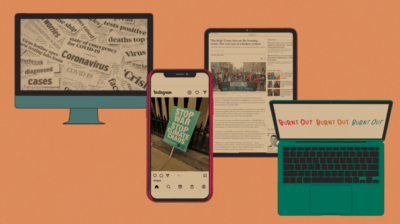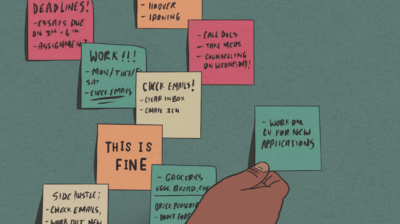Labour Disputes
Find out more about what may happen if a labour dispute arises in the workplace

In any workplace, issues can arise that need to be worked out. Employers and employees will need to work together to resolve the issue and reach an agreement. Sometimes, employees will take industrial action, such as going on strike, to get their employer to listen to their demands. However, not every labour dispute results in a strike, and there is a process to deal with these issues.
What is a labour dispute?
A labour dispute is any disagreement between an employer and their employees about a work matter.
This can include issues of:
- hiring and firing
- pay
- in-work benefits
- terms and conditions of employment
Employees always have rights, and labour disputes can start when they feel those rights aren’t being respected by their employer. Disputes can also begin when workers feel they deserve better pay or benefits but the employer either disagrees or feels unable to offer an increase.
What happens when a labour dispute arises?
In many cases, an employer will listen to the concerns of their employees and try and work out a solution where possible. Raising potential issues with your boss can be a good way to make sure they don’t bloom into real problems down the road, especially if they affect a significant number of people in the workplace.
Trade unions are very helpful in this. Joining a union is a way of making sure employees can talk to management on an equal footing. The union’s goal will be to try sort out your dispute in as satisfactory a way as possible. A union will usually only recommend a strike or other industrial action once all other options have been exhausted.
Is this the same as a strike?
The most well-known result of labour disputes is a strike, where employees withdraw their labour and refuse to work until their demands are met. But a strike usually only occurs when relations between employees and workers have broken down and an acceptable compromise can’t be reached. Going on strike is also known as taking industrial action. There are many things that can be done to help solve a labour dispute before it reaches this point. Other forms of industrial action include a picket, an overtime ban, or work-to-rule. Find out more about industrial action here.
The Workplace Relations Commission
Disputes that can’t be worked out between employers, employees and/or their union representatives may have to bring in the Workplace Relations Commission. This is the state service responsible for improving workplace relations. The Workplace Relations Commission offers the following services which may be useful in a labour dispute:
- Advisory Service: offers advice and assistance to workers, employers and trade union representatives and tries to build better working relations. For more information, you can email [email protected]
- Conciliation Service: helps resolve labour disputes that can’t be worked out by workers, employers and trade union representatives alone. To request concilliation, fill out the concilliation referral form.
- Mediation Service: give employees and employers an opportunity to work together to solve issues in the workplace. You can apply online for mediation here.
- Adjudication Service: investigates potential violations of workers’ rights.
- Inspection Service: ensures employers are complying with labour laws.
To bring up an employment rights claim with the Workplace Relations Commission, you need to fill out the online complaints form.
The Labour Court
When a dispute is brought to the attention of the Workplace Relations Commission, an adjudicator may be sent to investigate and make a decision. If employees or employers are unhappy with the decision of the adjudicator, they can make an appeal to the Labour Court. This should be done within 42 days after the date of the decision of the adjudicator.
Do you need a lawyer to go to the Labour Court?
You do not need to have representation at the Labour Court. If you do want to be accompanied or represented, you can bring:
- A trade union official
- A practising barrister or solicitor
- A parent or guardian (if you are under 18)
- Any other person, with permission from the Labour Court
If you don’t have any representation, the Labour Court will make sure you won’t be at a disadvantage because of this.
What happens at the Labour Court?
The Labour Court will hear both sides and can make recommendations for how the dispute should be resolved. The court’s rulings aren’t legally binding – neither employers nor employees have to do what it says. But as there is no higher authority for resolving labour disputes, it’s usually expected that both sides will honour the court’s decision.
You can apply to bring your case to the Labour Court by filling out the Labour Court Appeals Form.
For more infroamtion on labour disputes. visit www.workplacerelations.ie.
Need more information?
We are here to answer your questions and talk through your options. Our online chat service is for 16 to 25 year olds and is available Monday to Friday, 4pm to 8pm. Chat to us now about your situation.
- Chat now to a trained Youth Information Officer
- Or leave us a message and we will email you back






